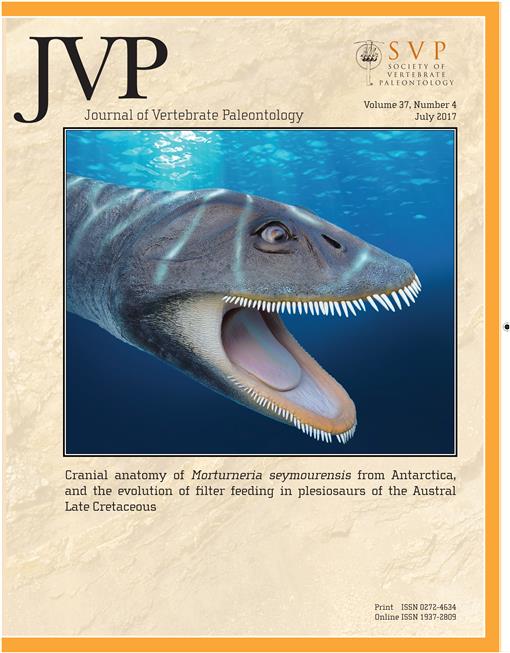A new specimen, referred to the notharctid primate Notharctus tenebrosus, is described from the middle Eocene of eastern Nevada. The material consists of the upper and lower jaws with most tooth loci represented, including rare representation of relatively unworn upper incisors. The completeness of the specimen permits a restoration of the spatial relationships of the anterior teeth, demonstrating that there was a small zone of interproximal contact between the upper central incisors. The relatively unworn upper incisors also indicate a unique cropping mechanism in notharctids not seen before in the group. The orientation of the cropping edges on the upper central incisors changed progressively with tooth wear, implying a shift in function and/or food properties over the course of dental senescence. The provenience of the specimen highlights the wide geographic distribution of this extinct primate species.
How to translate text using browser tools
1 July 2017
New Cranial Material of Notharctus (Mammalia, Primates, Notharctidae) from the Sheep Pass Formation, Elderberry Canyon, Nevada, with Implications for Incisor Morphology and Paleogeography of Notharctine Primates
Jonathan M. G. Perry,
Gregg F. Gunnell,
Robert J. Emry
ACCESS THE FULL ARTICLE

Journal of Vertebrate Paleontology
Vol. 37 • No. 4
July 2017
Vol. 37 • No. 4
July 2017




